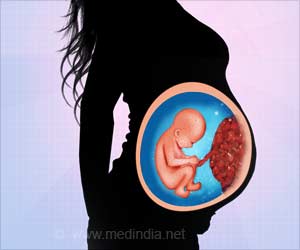
‘Stopping aspirin early post stenting found to decrease the incidence of bleeding and does not increase death rate.’
Read More..Tweet it Now
After undergoing a procedure known as percutaneous coronary intervention (PCI) to insert a stent, patients can be at risk for adverse events related to clotting, including heart attack and stroke. For this reason, antiplatelet medications are used to reduce the body’s ability to clot blood, but they also raise the risk of uncontrolled bleeding. Read More..
Current guidelines recommend balancing these risks by prescribing aspirin and one of three P2Y12 inhibitors for at least 12 months when a patient receives a stent after a heart attack (or six months for patients receiving a stent for angina), a strategy known as dual antiplatelet therapy (DAPT). The new trial assessed whether stopping aspirin after three months but continuing the P2Y12 inhibitor alone for 12 months would offer better results.
"Our study demonstrated that P2Y12 inhibitor monotherapy after a short duration of DAPT is a novel antiplatelet strategy balancing ischemic and bleeding risk in patients undergoing PCI," said Joo-Yong Hahn, MD, PhD, professor of medicine at Sungkyunkwan University School of Medicine in Seoul, South Korea and the study’s lead author. "Even though this treatment strategy needs to be confirmed in other trials, aspirin may be discontinued in most patients receiving current-generation drug-eluting stents, especially in patients with bleeding risk or in those with stable ischemic heart disease."
The trial enrolled 2,993 patients who underwent PCI and received a drug-eluting stent at 33 medical centers in South Korea. Patients were randomly assigned to receive either standard DAPT for a year or aspirin plus a P2Y12 inhibitor for three months and continue with only the P2Y12 inhibitor for nine more months after that.
After one year, 2.9 percent of patients who stopped aspirin early experienced the primary endpoint, a composite of death from any cause, heart attack or stroke, compared to 2.5 percent among those following standard DAPT. Based on thresholds determined before the trial began, these rates indicate that stopping aspirin early was not inferior to DAPT in terms of the trial’s primary endpoint.
Advertisement
A little more than three-quarters of the study participants took clopidogrel, the most common P2Y12 inhibitor, with the rest taking either prasugrel or ticagrelor. Hahn said that the trial’s inclusion of different P2Y12 inhibitors distinguishes it from other trials investigating alternatives to DAPT.
Advertisement
One limitation of the study is that a considerable proportion of patients in the group assigned to stop aspirin early in fact received aspirin after three months, although a more detailed analysis suggested this discrepancy did not undermine the overall findings. Another limitation is that the trial allowed patients to know which medications they had been assigned to take, rather than giving some patients a placebo.
The researchers will further analyze the data to determine whether the type of P2Y12 inhibitor used or variables reflecting patients’ physiological response to the P2Y12 inhibitor may affect outcomes. In addition, they are investigating whether the risk of ischemic events varied among patients with acute coronary syndrome versus stable ischemic heart disease.
Source-Eurekalert











